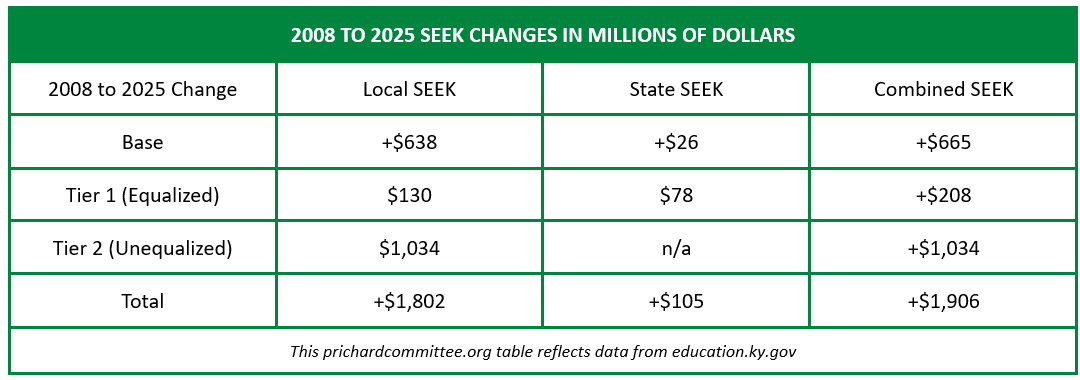LEXINGTON, Ky -- The Prichard Committee for Academic Excellence has awarded 29 Kentucky schools and early care centers with a Family Friendly Schools Certification this spring. "Schools that earn this certification have demonstrated their commitment to proactively engaging families in their student’s education," said Brigitte Blom, president and CEO of the Prichard Committee for Academic Excellence. “These schools have been innovative and energetic in their efforts to make families a valued part of their school’s team, which enriches the learning experience for students. We’re excited they’ve chosen to pursue this certification to demonstrate their dedication to their students and community.”
The schools have worked to foster more effective partnerships with families and the broader community. As part of the certification process, a multidisciplinary team consisting of families, teachers, and administrators used a self-assessment tool to evaluate the school's family engagement performance. This team evaluated the school's practices, identified key areas for improvement, and integrated new practices designed to elevate its family-friendly rating.
The Family Friendly Schools Certification is awarded by the Prichard Committee after applications are reviewed and scored by a working group of families, educators and community organizations. The group is focused on increasing open communication, learning opportunities and shared decision-making power across the Kentucky education system.
“Schools and early care centers who apply for Family Friendly Schools Certification gain a deeper understanding about the importance of family-school partnerships, examine core beliefs about family-school partnerships and apply concrete strategies for increasing family engagement in their school,” said Blom.
The Kentucky Department of Education includes the Family Friendly Schools Certification in its school report card as evidence of effective family engagement.
“The Family Friendly Schools Certification highlights the exceptional work being done across Kentucky to build strong, collaborative relationships between schools and families,” said Clay Ford, Prichard Committee Board Chair.
For more details on the Family Friendly Schools Certification, visit prichardcommittee.org/familyengagement.
2024 Spring Family Friendly Schools Certification Awardees
- Reidland Elementary School*
- North Washington Elementary Early Childhood Center*
- North Washington Elementary and Middle School*
- Washington County Elementary Early Childhood Center*
- Washington County Elementary School*
- Washington County High School*
- Washington County Middle School*
- Floyd County Early Childhood Center
- Breckinridge Elementary School
- Campbell Ridge Elementary School
- Clearfield Elementary School
- Crossroads Elementary School
- Donald E. Cline Elementary
- East Bernstadt Independent
- Eastside Child Development Center
- Grant’s Lick Elementary School
- Greysbranch Elementary School
- John W. Reiley Elementary School
- Lansdowne Elementary School
- Murray Elementary School
- NKCAC (Northern Kentucky Community Action Commission) Head Start—Alexandria Center
- NKCAC Head Start—Elsmere Center
- NKCAC Head Start—Falmouth Center
- NKCAC Head Start—Newport Center
- NKCAC Head Start—Boone County Center
- Picadome Elementary School
- Tygart Creek Elementary School
- Wurtland Middle School
- Yates Elementary School
* Denotes Gold Certification












